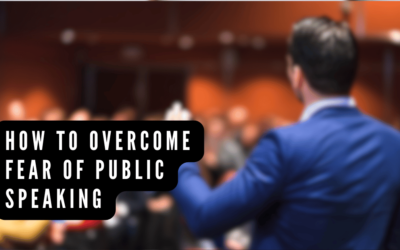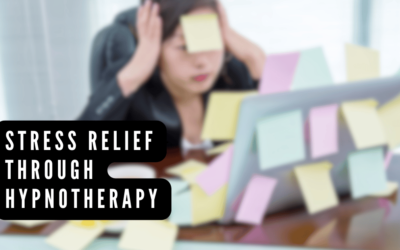Anxiety isn’t a really fun feeling to have… Especially when it leads to symptoms, such as:
- Racing thoughts
- Rapid heartbeat
- An inability to relax
…the struggle can feel endless.
The most common problem with anxiety – almost no one can fully cure it.
(or the path comes with tons of challenges.)
Fortunately, hypnosis gets recognition for its potential treatment of anxiety. But, is it really that effective and what can you expect? Although it may seem like a woo-woo at first, it’s far more effective than most people give it credit for.
- How Hypnosis Treats Anxiety
- 5 Biggest Benefits of Using Hypnotherapy for Anxiety
- What Happens During a Hypnotherapy Session?
- Can Hypnotherapy Be Combined with Other Treatments for Anxiety?
- What About Self-Hypnosis for Anxiety?
- Finding a Qualified Hypnotherapist for Anxiety
- Reclaim a Calmer, More Confident Anxiety-Free Life
How Hypnosis Treats Anxiety
Hypnosis is a therapeutic practice that involves guiding a person into a deep state of relaxation and focused attention. In this state, your conscious mind relaxes, making it easier for the subconscious mind to take in positive suggestions and new thought patterns.
(which changes the way you perceive things and life – leading to lasting changes!)
Clinical hypnotherapy has been used to address a range of mental health conditions, including:
- Anxiety disorders
- Trauma
- Negative beliefs
…and so many more.
Common Types of Anxiety Treated with Hypnosis
Hypnotherapy is effective for various types of anxiety, including:
- Generalized Anxiety Disorder (GAD): This involves excessive and uncontrollable worry about everyday situations.
- Social Anxiety Disorder: Characterized by intense fear of social situations and fear of judgment or embarrassment.
- Panic Disorder: Includes sudden and intense episodes of fear, often accompanied by physical symptoms like rapid heartbeat and shortness of breath.
- Specific Phobias: Fear of particular situations or objects, such as flying or heights.
The Role of the Subconscious Mind in Managing Anxiety
The subconscious mind holds beliefs, memories, and automatic behaviors that can trigger anxiety.
Through hypnosis, you access this part of the mind to reshape how it responds to anxiety-provoking situations. This leads to long-term improvements in how you manage:
- Social gatherings
- Public speaking
- Other anxiety-inducing scenarios
5 Biggest Benefits of Using Hypnotherapy for Anxiety
The benefits of using hypnotherapy for anxiety include:
- Enhanced Relaxation and Reduced Stress: Regular hypnosis sessions promote deep relaxation, which can lower anxiety levels and muscle tension.
- Long-Term Results: Unlike some short-term anxiety treatments, hypnotherapy can create lasting changes by addressing the subconscious mind, which holds the triggers for anxiety.
- Improved Emotional Control: Hypnotherapy encourages the brain to process emotional triggers differently, helping to reduce panic attacks and intense fear.
- Safe and Non-Invasive: Hypnosis is a natural and non-invasive approach that avoids the side effects associated with antianxiety medications.
- Increased Social Confidence: Hypnotherapy helps reframe thoughts about social situations, making it easier to engage without excessive fear or discomfort.
What Happens During a Hypnotherapy Session?
A typical hypnotherapy session involves several stages:
#1: Initial Consultation and Goal Setting
We start by conducting an initial consultation to understand you and your situation.
- What are the symptoms of your anxiety?
- What are your past experiences?
- What are the triggers?
We get as much information as possible to make the hypnosis super-effective. This also helps us tailor everything to your needs, so the process is not just effective, but also without challenges.
#2: Induction Phase
At the first session, we help you get into a state of deep relaxation – A.K.A. when your subconscious mind is the most perceptive.
(that’s the state where real changes take place!)
We usually do that by using relaxation techniques, such as:
- Deep breathing
- Guided visualization
#3: Techniques Used During Hypnosis for Anxiety
After the induction phase, we are ready to reprogram your mind and help to reduce anxiety – or cure it altogether. Some of these techniques include:
- Age Regression Technique
This involves revisiting past events that may have contributed to current anxiety. The goal is to reframe these experiences and release their hold on the subconscious mind.
(basically, we solve past issues or traumas that hold you back.)
- Guided Imagery and Visualization
We use detailed imagery to help you imagine yourself in anxiety-free situations. This promotes a positive outlook and helps rewire the brain’s response to anxiety triggers.
So, when the situation comes up, instead of your usual panic and anxiety, you’ll be ready and calm.
- Positive Suggestions and Affirmations
Positive suggestions replace negative thought patterns with healthier, more constructive ones. These suggestions improve emotional control and reduce feelings of panic.
You’ll start feeling better about yourself, become more confident, and be in charge of your mind.
- Breathing and Relaxation Exercises
Muscle relaxation and focused breathing are essential in maintaining calm during stressful situations.
These techniques can be practiced during and outside of hypnotherapy sessions for ongoing anxiety relief – so even if anxiety hits you, you know how to deal with it and overcome it.
Can Hypnotherapy Be Combined with Other Treatments for Anxiety?
Yes, hypnotherapy can work well with other treatments for anxiety.
Many mental health experts recommend using a mix of therapies because they can support each other and make treatment more effective.
Let’s look at the examples of combining hypnotherapy and other treatments to speed up the process.
Hypnotherapy & Cognitive Behavioral Therapy
For example, hypnotherapy can be combined with cognitive behavioral therapy (CBT).
While CBT helps to change negative thoughts, hypnotherapy can help access the subconscious mind to address the underlying triggers of anxiety.
Hypnotherapy & Mindfulness / Relaxation Techniques
Hypnotherapy can also be used alongside mindfulness practices and relaxation techniques.
This combination helps you relax better and manage your emotions, making it easier to face anxiety-provoking situations.
Hypnotherapy & Medication
Pairing hypnotherapy with traditional medical treatments, like medication or exposure therapy, can help reduce the side effects of anxiety medication and create a more complete treatment plan.
…again, making your path toward a better life less overwhelming.
What About Self-Hypnosis for Anxiety?
Self-hypnosis is great for managing anxiety, especially when used in between hypnotherapy sessions – helping you with:
- Practicing relaxation techniques
- Reinforcing positive suggestions
- Reduce feelings of anxiety
Many people find that self-hypnosis helps them feel more in control, too.
How to Practice Self-Hypnosis
To practice self-hypnosis effectively, it’s important to learn the right techniques, which include:
- Deep breathing
- Visualization
- Focusing on calming images or thoughts
There are many resources available, including guided audio recordings and apps, that help you develop these skills.
With regular practice, self-hypnosis enhances your overall sense of well-being and reduces anxiety levels.
But… It Doesn’t Work All The Time!
However, while self-hypnosis can be beneficial, it may not always deliver the same results as working with a qualified hypnotherapist.
When you work with a professional hypnotherapist, you get their expertise and experience to help you through personalized sessions. They focus on your unique triggers and needs, offering insights and strategies that self-hypnosis alone might not provide.
If you’re dealing with more intense anxiety or want quicker relief, teaming up with a professional can lead to faster and more effective results.
Finding a Qualified Hypnotherapist for Anxiety
Since hypnotherapy is still an unregulated industry, when seeking a hypnotherapist, it’s crucial to look for someone with proper training and credentials.
Many qualified hypnotherapists have certifications from reputable institutions and experience in treating anxiety-related conditions. Asking about their training in hypnosis and reading client reviews can help ensure you choose the right professional.
This can be questions, such as:
- What type of training and experience do you have in treating anxiety disorders?
- How many hypnotherapy sessions do you recommend?
- Do you provide self-hypnosis techniques for home practice?
Reclaim a Calmer, More Confident Anxiety-Free Life
Anxiety doesn’t have to take control of your life forever.
- You can be free from anxiety
- Reclaim your peace
- And live your best life
…it doesn’t take that long either!
If you’re in search of the ideal hypnotherapist for you, contact us today for a FREE initial 15-minute consultation so we can design a custom treatment plan for you. Whether you want physical sessions in Northern Utah, or online sessions from anywhere in the world, we are here to help.
Read what past clients are saying here, or click now to schedule your consultation.
FAQs
Can hypnosis be used to treat other types of anxiety disorders?
Yes, hypnosis can be effective for various forms of anxiety, including generalized anxiety disorder, panic disorder, and phobias. It helps by addressing underlying triggers and promoting relaxation and positive thinking.
How many hypnotherapy sessions are usually needed to see results for anxiety?
The number of sessions varies based on individual needs, but most people notice some improvement after 4 to 6 sessions. Consistent practice and follow-ups with your therapist can enhance long-term benefits.
Is hypnotherapy a safe option for treating anxiety?
Yes, hypnotherapy is generally considered a safe, complementary treatment when performed by a trained professional. It has minimal risks compared to some medications and typically doesn’t have adverse side effects.
Can I use hypnosis audio recordings for anxiety relief?
Yes, hypnosis audio recordings can be a helpful tool for managing anxiety between professional sessions. While they may not be as personalized, they can aid in relaxation and reinforce positive thought patterns.
Is hypnosis suitable for children or teens with anxiety?
Yes, hypnosis can be adapted for children and teens dealing with anxiety. Working with a qualified hypnotherapist who specializes in younger clients ensures that the approach is age-appropriate and effective.


